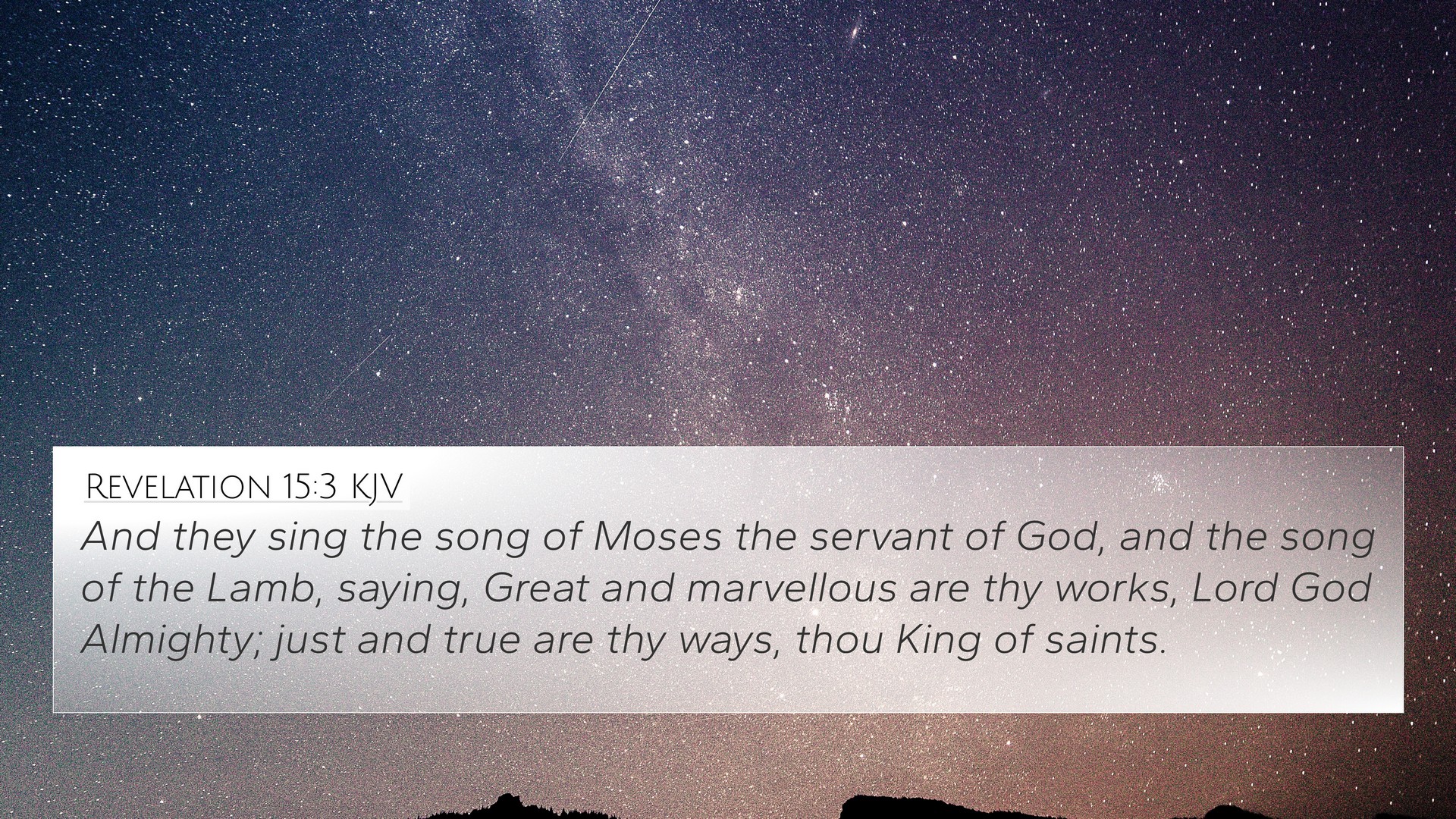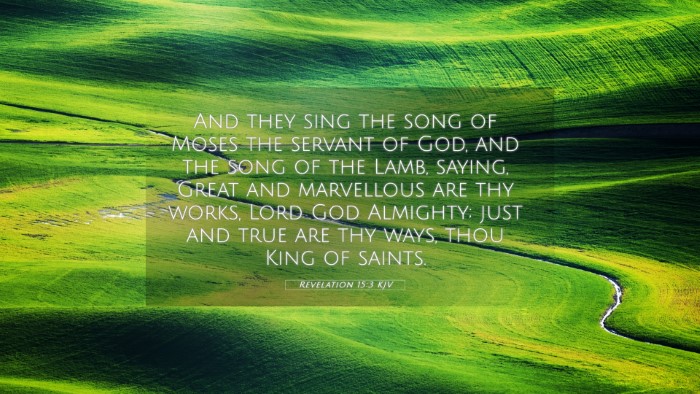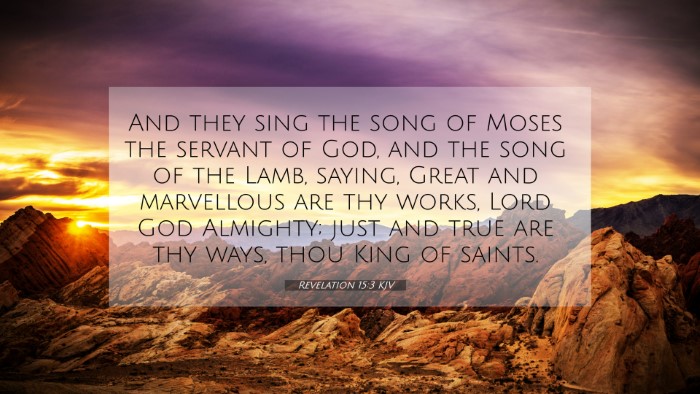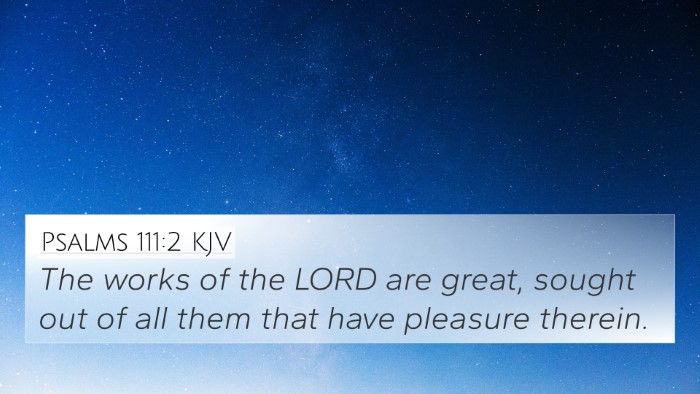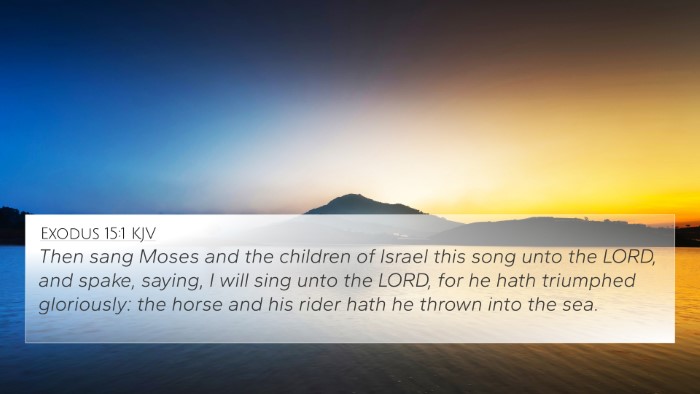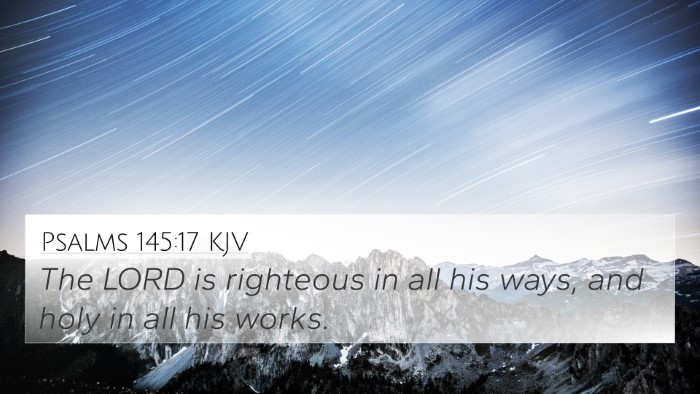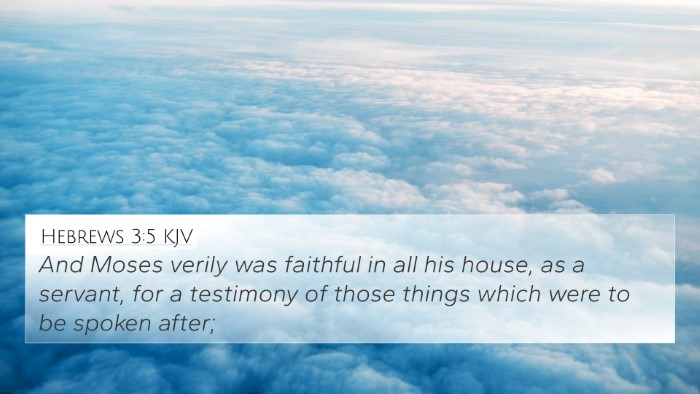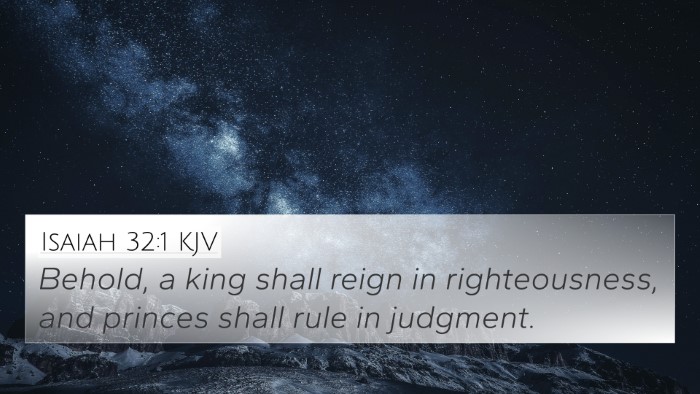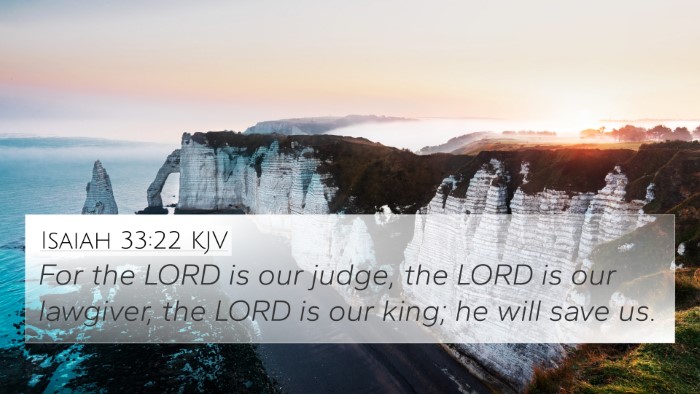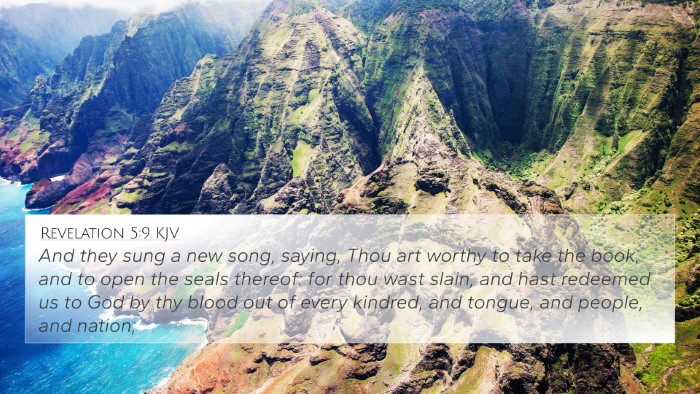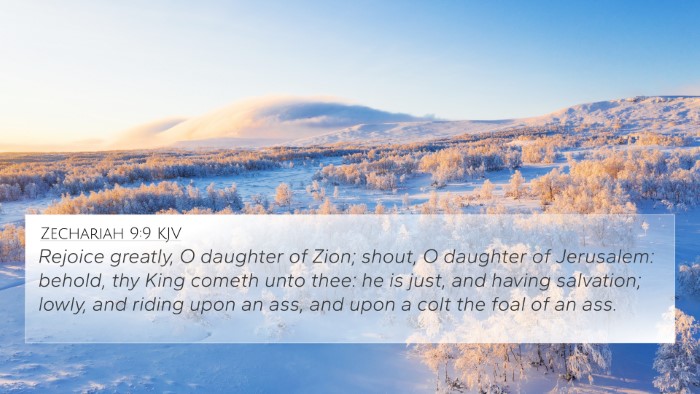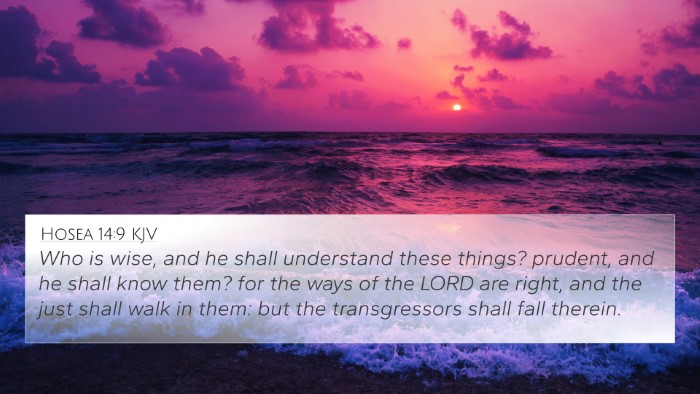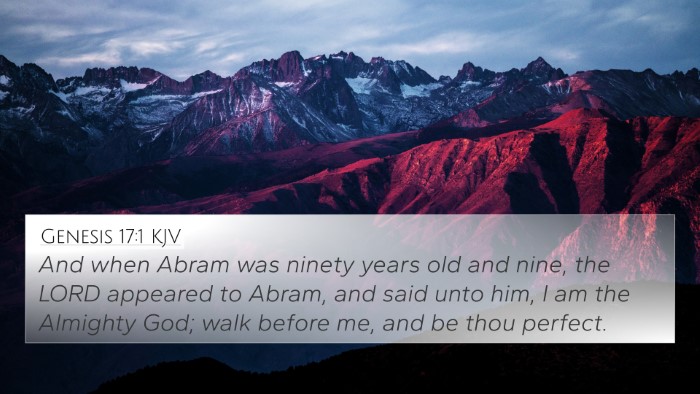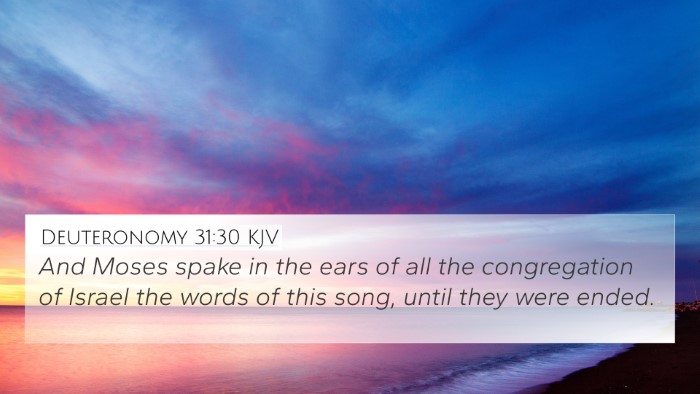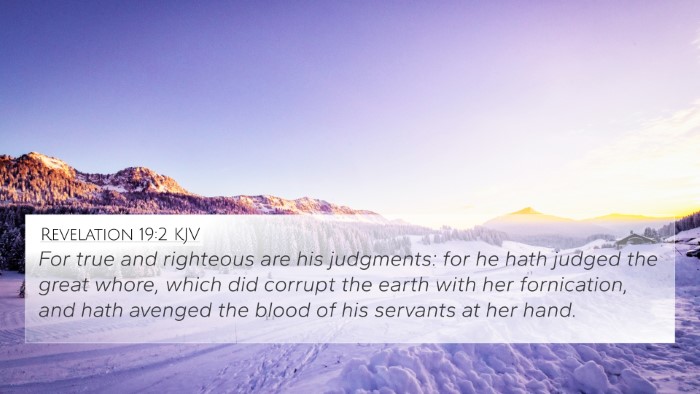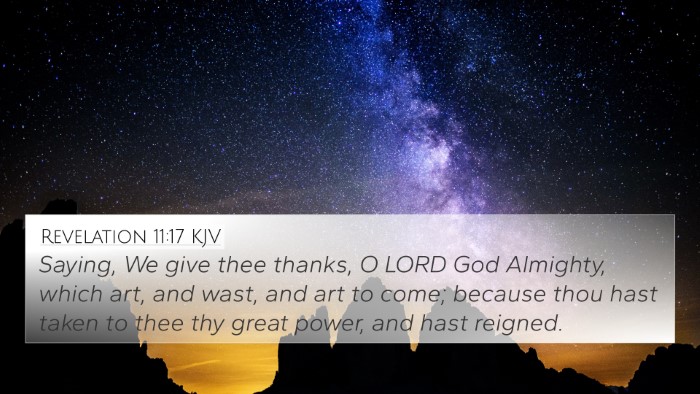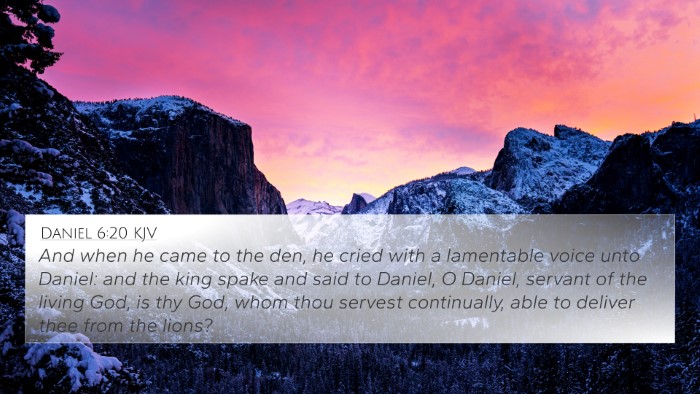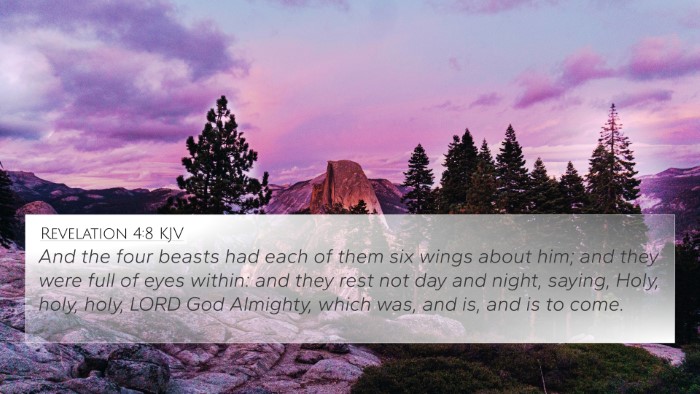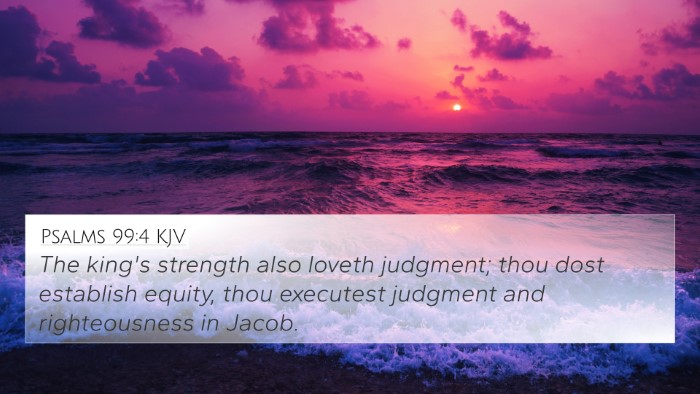Understanding Revelation 15:3
Verse: "And they sing the song of Moses the servant of God, and the song of the Lamb, saying, Great and marvelous are thy works, Lord God Almighty; just and true are thy ways, thou King of saints."
Meaning and Analysis
This verse captures profound theological themes within the framework of Revelation, emphasizing worship, the righteousness of God, and the intertwining of the Old and New Testament narratives. Commentaries by Matthew Henry, Albert Barnes, and Adam Clarke provide a rich tapestry of insight that enhances understanding of this verse.
Contextual Background
Revelation 15 is situated in the final chapters of the Bible, heralding the imminent judgment and redemption that God will enact upon the earth. This specific verse draws upon the tradition of singing praises to God, referencing both Moses and the Lamb, embodying both the law and grace.
Key Themes
- Song of Moses: Historically, the song of Moses (Exodus 15) celebrates God's deliverance of Israel from Egypt, symbolizing victory and faithfulness.
- Song of the Lamb: Referring to Christ's redemptive work, it encapsulates the victory over sin and death.
- God's Works: "Great and marvelous are thy works" speaks to God's mighty deeds throughout history, inviting reflection on His sovereignty.
- Justice and Truth: The declaration of God's ways as "just and true" reinforces His righteousness, a theme echoed in many biblical texts.
- King of Saints: This title elevates Christ's authority, suggesting His role as both the Redeemer and the Sovereign.
Commentary Insights
Matthew Henry emphasizes the grandeur of God's works, suggesting that both songs reflect the experiences of God's people—the deliverance from sin mirrored by physical deliverance in Exodus.
Albert Barnes points out the community aspect of worship, where the saints unite in proclaiming God's attributes, fostering a spirit of fellowship in their praise.
Adam Clarke interprets the connection between the songs as a bridge between the Old and New Testaments, underscoring the continuity of God's plan for salvation.
Bible Verse Cross-References
- Exodus 15:1-18: The original song of Moses, celebrating God's deliverance.
- Psalm 145:17: God's righteousness connects to His just ways.
- Isaiah 25:1: Praise for God’s faithful works echoes the sentiment of Revelation 15:3.
- Romans 11:22: God’s severity and kindness encapsulated in the theme of justice.
- 1 Timothy 6:15: Recognition of Christ as the King aligns with the title "King of saints."
- Revelation 5:9-10: Another song of praise depicting Christ’s redemptive work.
- Hebrews 3:5-6: The faithfulness of Moses compared to Christ’s greater glory.
- Revelation 4:8: The holiness of God and His eternal nature is praised by celestial beings.
- Psalm 86:8-10: The declaration of God’s uniqueness and works parallels the worship in Revelation.
- Isaiah 6:3: Worship of God's holiness reflects the same reverence found in Revelation 15.
Connections to Other Scriptures
By examining the lyrics of the song of Moses and the song of the Lamb, one can identify a rich inter-Biblical dialogue that enhances thematic understandings within Scripture. The reflection upon God’s attributes invites readers to connect the righteousness laid out in the law with the grace offered through Jesus Christ.
- Old and New Testament Links: The connection between the liberation stories in Exodus and the salvation through Christ provides a comprehensive look at God's plan.
- Thematic Cross-References: Recognition of God's works through history serves as both a lesson and a foundation for worship.
- Comparative Analysis: Analyzing parallels in praise shows continuity in God's character and mission throughout Scripture.
Cross-Referencing Tools and Study Methods
Utilizing tools for Bible cross-referencing, such as a Bible concordance or a cross-reference Bible study guide, can greatly enhance one's understanding of verses like Revelation 15:3. Identifying connections between Old and New Testament scriptures provides depth to one’s study and interpretation.
For those engaged in sermon preparation or thematic studies, employing a comprehensive Bible cross-reference system allows for an exploration of related scriptures, enriching one’s grasp of the intricacies of the Bible.
Conclusion
Revelation 15:3 not only highlights the praises sung by saints in heaven but also intricately links back to the history of God's relationship with His people. The songs reflect a unity of faith across both the Old and New Testaments, pointing towards God's ultimate plan of redemption. By exploring these connections, one can gain a deeper appreciation for the narrative woven throughout Scripture.
